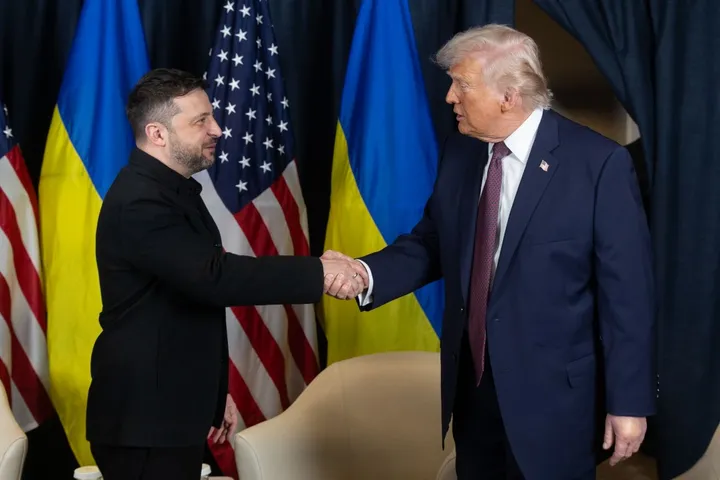The Council of Europe has pulled posters featuring a woman wearing a hijab as part of an online campaign that was launched on October 28 to promote diversity among women and respect for Muslims with headscarves.
The decision came after a widespread outcry from the French public and political figures who found the campaign and its posters that involve hijab-wearing women as ''deeply shocking.''
The online campaign, co-financed by the European Union, was the outcome of two online workshops held in September by the partnership between the Council of Europe’s Anti-Discrimination department and the Forum of European Muslim Youth and Student Organisations (FEMYSO).
''This specific collaboration was in the form of online workshops with the aim of developing together with diverse participants human rights-based narratives to counter anti-Muslim hate speech,'' Hande Taner, President-elect of FEMYSO told TRT World while indicating their long-standing relationship with the council given their work supporting minorities in Europe.
The Council of Europe published posters on social media to create awareness for ending discrimination against Muslim women.
The tweeted images involve various pictures of women in hijabs with slogans that read ''Beauty is in diversity-as freedom is in hijab'', and ''my headscarf, my choice''.
However, the awareness campaign backfired and was condemned in France.
''It was met with backlash due to the pressure created by the poisonous narrative around Muslims online by prominent French politicians, diplomats and speakers,'' said Taner.
Pressure
A far-right pundit Eric Zemmour criticised the campaign saying "Islam is the enemy of freedom. This campaign is the enemy of truth," on his social media account.
Far-right leader Marine Le Pen, President Macron's main opponent in the next election, also reacted to the campaign.
''This European campaign promoting the Islamist veil is scandalous and indecent at a time when millions of women courageously fight against this enslavement," she said.
"It's when women take their veil off that they become free, not the other way around," she added.
“Reminding that women are free to wear the hijab is one thing,” said French socialist Senator Laurence Rossignol.
“But saying freedom is in hijab is another. It’s promoting it. Is this the role of the Council of Europe?”
France's youth minister, Sarah El Hairy, on the other hand, revealed that the one poster deeply shocked her as she believes that the campaign encourages wearing a headscarf.
''It is the opposite of the values France is standing up for… France made its very strong disapproval of the campaign clear, which is why it was pulled today,” she added during an interview on French TV last week.
On October 6, following France's request and the backlash, the Council of Europe announced that it deleted the posts for the campaign while looking for ''a better presentation of this project.''
The council also stated that the aim of the campaign, which is part of a project within the European Union (EU), is to raise awareness about respecting diversity and combating all forms of hate speech.
''The campaign falls within the values and priorities of the Council of Europe and of European Union institutions, which also FEMYSO advocate for human rights and against hate speech,'' Taner said, stressing as a member state of both organisations, France should better adhere to collective European values of human rights.
‘French Islamophobic bullying'
This led to the question: what values is France is defending?
Rayan Freschi, a Researcher at CAGE, explains that France has been an ideological laboratory for the West for centuries.
''Its political and philosophical framework is clearly not tolerant and inclusive: deep systemic racism has always been part of the French Republic's DNA,'' Freschi told TRT World while adding that Islamophobia in France is now state-sponsored.
According to Freschi, France's ideological structure - based upon the Republic and laicite (secularism) are inherently bigoted towards normative religious beliefs and practices.
Hijab in this regard is the most controversial - and indeed rejected.
Hence, this mindset paved the way for the government's pressure on the council to cancel its campaign.
Yasser Louati, a French human rights and civil liberties activist, tells TRT World that the French outrage is not a surprise and this only further undermines the very notions of the Council of Europe which are human rights and civil liberties.
''France again proved that it has been the laboratory of Islamophobia that tries to normalise this open hostility to the visibility of Muslims in the public sphere. And this move of France further confirms that the country’s hostility to Muslims is not a hoax,'' Louati said while adding that it is a reality for millions of Muslim women.
''Basically what we are witnessing is French Islamophobic bullying,'' he added.
Previously, The French satirical magazine Charlie Hebdo’s cartoons was subject to global controversy by publishing anti-muslim cartoons involving depictions of the Prophet Muhammad, a move that was seen as insulting Islam.
As a response to the widespread condemnation, France's discourse centred around the concepts of democracy and freedom of speech. However, regarding this recent campaign that cherishes freedom for Muslim headscarves, different rhetoric has been adopted.
Yasser argues that France's understanding of freedom contains double standards and is hypocritical when it goes against the dominant narrative.
''You have freedom of speech when you dehumanise Muslims, when you make fun of Black people or immigrants. But you cannot make fun of Emmanuel Macron who prosecutes any person who criticises or makes fun of him,'' he said.
Yasser draws attention to the anti-separatism bill approved by The French National Assembly that may stigmatise minorities.
''This anti-separatism law allows the government shutdown any organisation based on political disagreement,'' he said, emphasising that France is further reinforcing its position as a leader of normalising Islamophobia compared to other countries in the West.
Paradoxical Universality
Considering European values within the context of freedom, democracy and rule of law, Yasser indicates that these values tend to be circumstantial in France.
The restriction of efforts to construct human-rights based narratives to tackle discrimination raise the question of the universality of the concepts of liberite, egalite and fraternite that lay the historical foundations of France.
''French Universalism is the ideological justification of its past colonial imperialism,'' Freschi said while adding that the current French approach towards Islam and Muslims is completely in line with its colonial past.
In fact, he claims that for France, those who do not live according to this worldview, like French Muslims, are deemed regressive and simply are not free - and this illustrates the paradoxical structure of the French values considering liberalism.
According to Yasser, France believes that it can lecture other countries abroad on what they should and should not do about human rights and civil liberties.
''But the ongoing repression only displays that France is not a democracy as it claims to be,'' he said, emphasising France should hold a mirror up to itself.
In this context, Taner argues that Muslims in France are exposed to a one-sided liberty and the removal of the campaign imagery is clear evidence of that.
''By trying to silence this campaign of positivity and change, France is not only normalising and legislating for Anti-Muslim hatred in France, they are now exporting this culture of limiting the freedom of speech across the rest of Europe.''
According to her, despite French claims that its liberty applies to all, Muslims are not seen as equal nor deserving liberty.
''Any country that actively limits the freedom of speech and curbs the rights of religious minorities is in fact not in line with European values and violates fundamental rights.''























